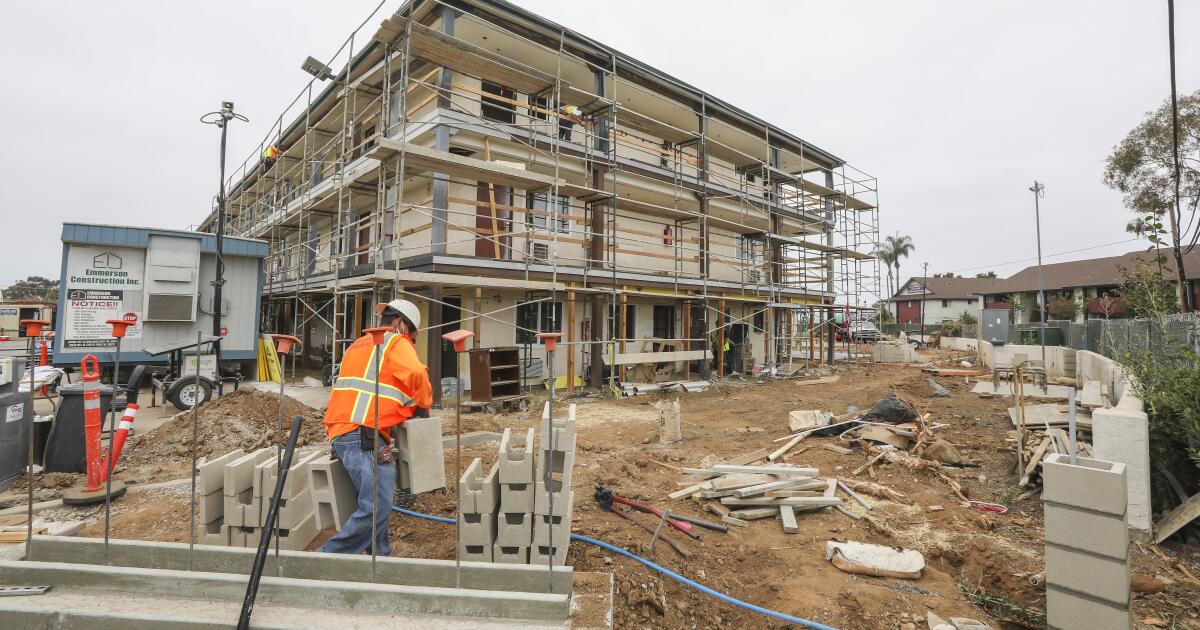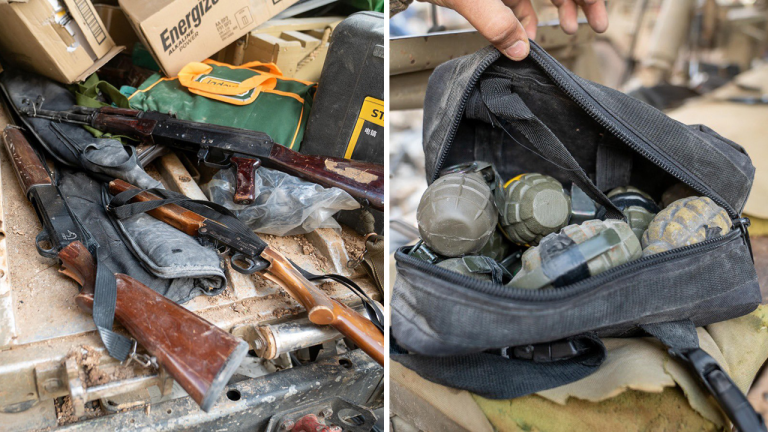

A controversial package of housing measures rejected by the San Diego City Council last week will be quickly revised and returned to the council for potential approval next month.
Mayor Todd Gloria and Council President Sean Elo-Rivera issued a joint statement this week saying they are moving quickly to revive the package because the city’s housing crisis is so urgent.
“The lack of affordable housing in San Diego is connected to every major challenge our city faces, and we must increase housing supply in order to bring down housing costs,” the joint statement said. “This housing action package will help us do that.”
The most controversial element of the wide-ranging package is a proposal to start allowing developers that participate in the city’s 3-year-old Complete Communities program to build low-income housing and market-rate housing in separate locations.
Under the program, developers can build much larger market-rate projects than zoning would otherwise allow if they agree also to build rent-restricted units for low-income people.
The program now requires all the units to be built at the same site, but the housing package proposes to allow the low-income units at a different location.
Critics, including Councilmember Monica Montgomery Steppe, said that change could concentrate more poverty in San Diego’s low-income areas.
Elo-Rivera tried to amend that part of proposal to restrict where the low-income housing could be built, but the council deadlocked 4-4 on his amendment. A version of the proposal without his amendment was rejected 5-3.
The revisions that will be unveiled next month are expected to focus on that element of the package.
“The package will include amendments aimed at achieving our shared goal of increasing housing opportunities for people of all income levels in all San Diego communities,” the joint statement said.
Gloria and Elo-Rivera didn’t give a specific date for the council hearing. The council is scheduled to meet Dec. 4, 5, 11 and 12 before a month-long legislative recess, but Elo-Rivera could also schedule a special meeting.
Dubbed Housing Action Package 2.0, the package also includes incentives for building new single-room-occupancy hotels, a policy accelerating conversion of businesses like scrapyards into housing and looser rules for housing on public land and underutilized commercial sites.
Critics, including many community leaders in neighborhoods dominated by single-family homes, say some of the proposals are reckless, ignore the need for supportive infrastructure and would damage the quality of life for many residents.
Supporters, including local developers, say the proposals are measured and sensible efforts to address the city’s glaring lack of affordable housing, which they say puts San Diego at risk of losing residents and businesses to other regions.
They also note that the package protects many low-income San Diegans with a policy that gives residents displaced by new housing projects a leg up on securing subsidized units within new developments in their neighborhood.
The update targeting businesses like scrapyards and other environmentally hazardous businesses for conversion to housing would apply only in the promise zone in southeastern San Diego and only on land zoned residential. Such businesses would have to relocate within 15 years so that the land could be converted to housing.
The incentives for construction of new single-room-occupancy hotels, widely considered the lowest rung on the housing ladder above homelessness, are intended to help reverse a sharp drop in such housing units.
Development across downtown in recent decades has shrunk the number of remaining SRO units in the city from roughly 14,000 in the late 1980s to fewer than 3,000 today.







